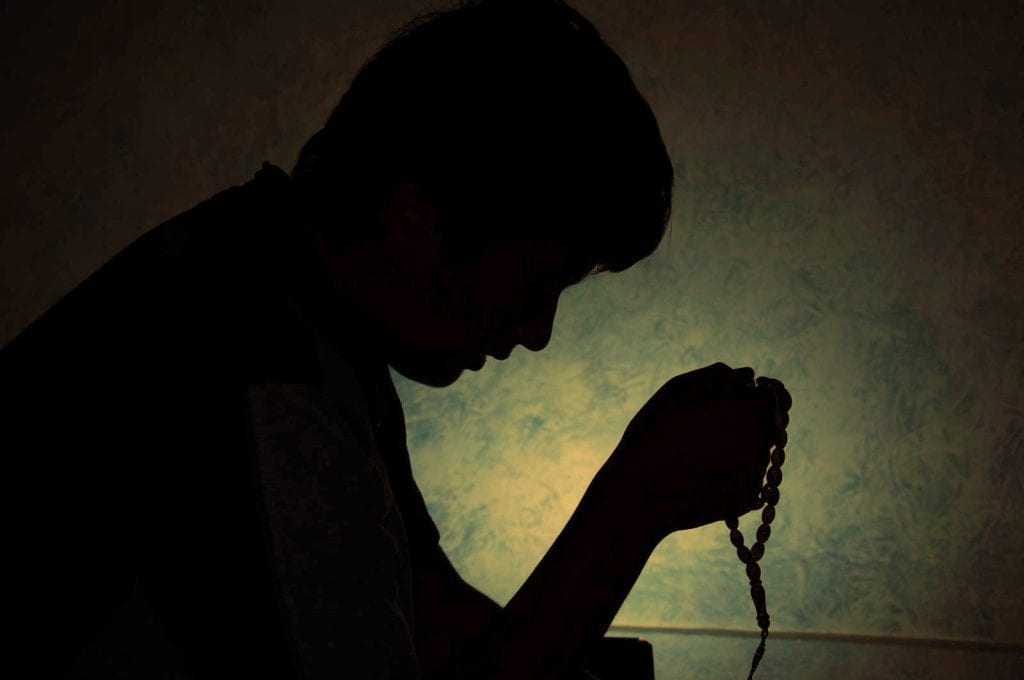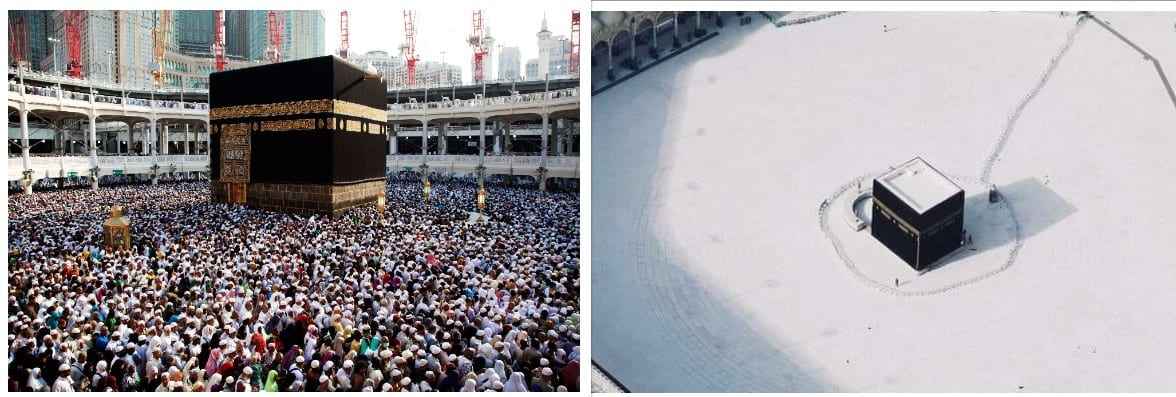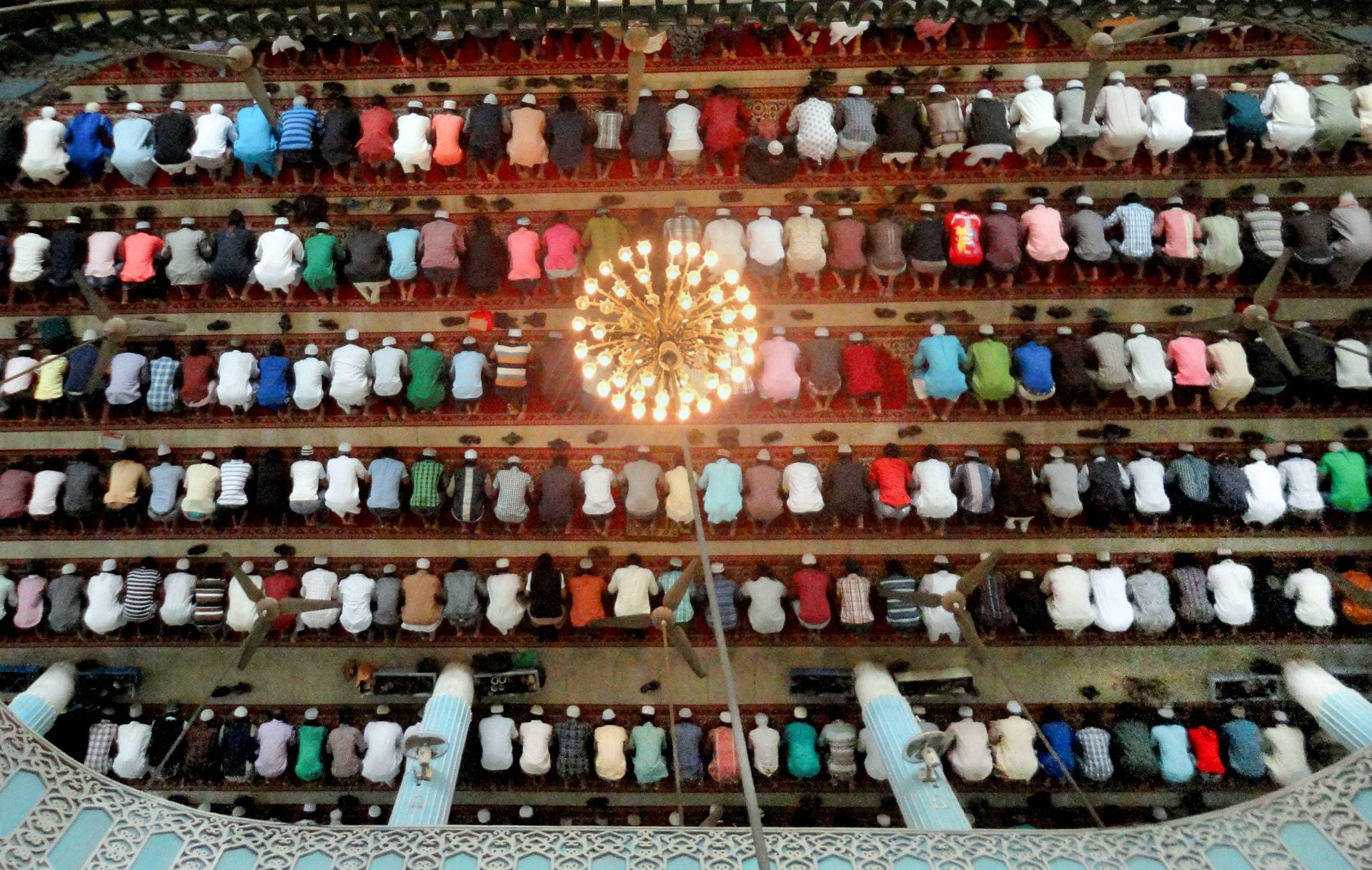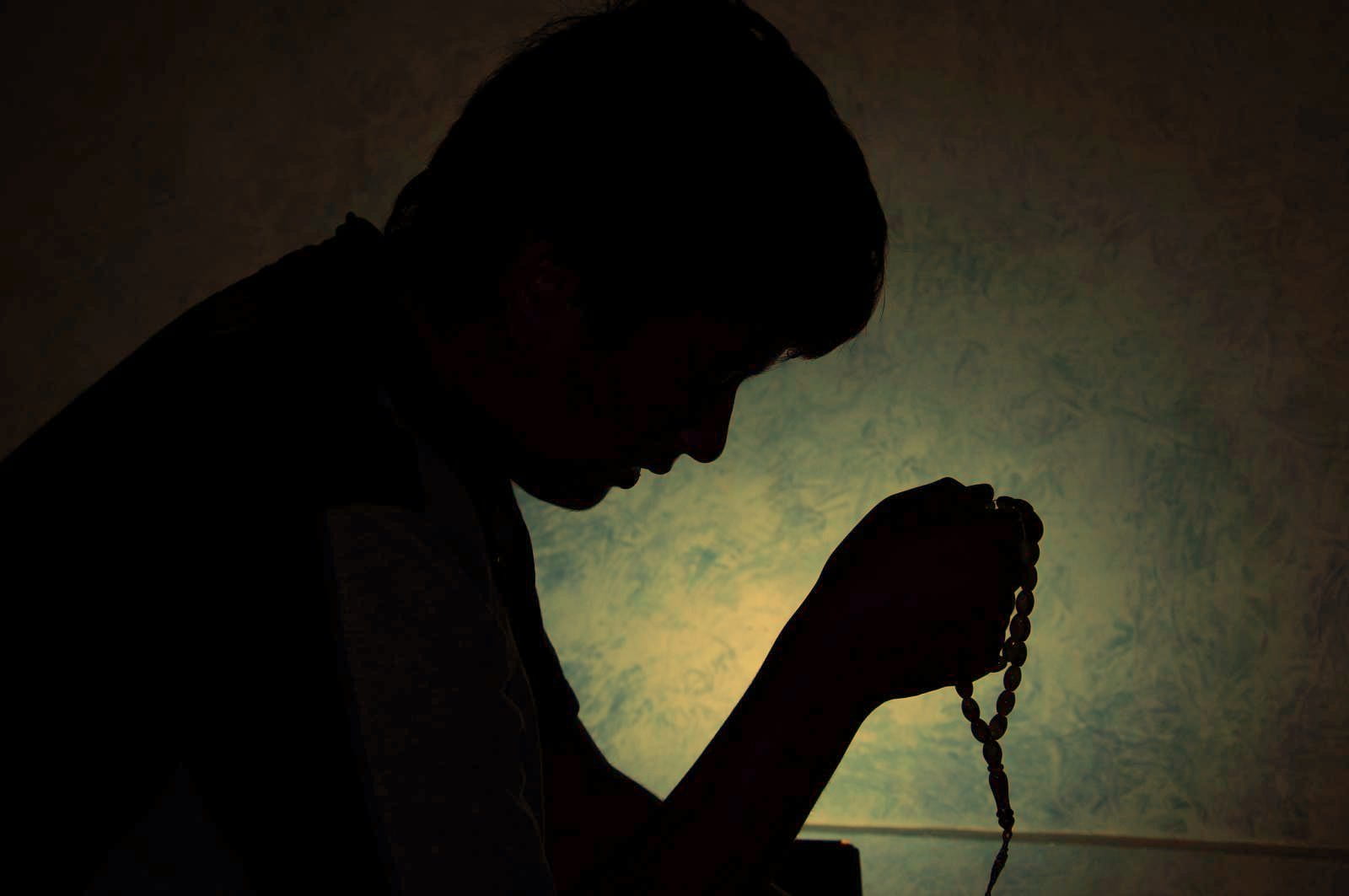
As the Covid-19 pandemic is taking the whole world by a storm of chaos and confusion, it is directly affecting various aspects of people’s lives. People around the world are trying to get used to this new normal and cope up with the challenges and changes in daily life caused by this global crisis. Since we are facing an outbreak like none other, it has directly affected and changed how we live, work, communicate, and carry out our daily lives. Religion is a very important part of most people’s lives and affects their everyday routine as well as physical, psychological, emotional, and spiritual beings. The freedom to have, follow, and practice a religion is a fundamental human right, and I will explore how the novel coronavirus crisis is impacting and interfering with the religious rights of people.
Since the pandemic has affected most places in the world, religious institutions and houses of worship are no exception. Churches, mosques, synagogues, and temples have been closed for all kinds of gatherings due to the social distancing protocols set through by the CDC as a response to Covid-19. In these unprecedented times, billions of people are resorting to religion as a first resort for comfort and solace. When all else looks unsettling, people of faith are turning closer to religion and spiritual observance throughout the world. But the pandemic has also interfered with traditional ways of practicing religion through the closure of the places of worship and withdrawal of gatherings of this sort. As a Muslim myself, I would like to share my observation and experience of the influence of this pandemic on the religious experiences of Muslims around the world.
Islam is the second largest and fastest growing religion in the world with more than 1.9 billion followers, thus a significant population of the world is facing challenges in exercising their religious rights and rituals. During the initial phase of the outbreak, the first immediate effect on Muslims was the cancellation of the Friday communal prayer. People were ordered to pray in their homes in order to avoid close contact with each other. This congregational prayer is of great significance to Muslims as they come together in mosques to listen to the weekly sermon, pray together, and fulfill this obligatory ritual. Therefore, its dismissal was a big deal for the Muslim communities worldwide and also led to conflicts in some areas. For example, worshippers in Pakistan clashed with police personnel trying to enforce the lockdown at the time of the prayer. Similarly, some mosques in Bangladesh continued to operate despite government restrictions and a massive prayer gathering with tens of thousands of devotees was held without permission from the authorities. The pictures of the event were shared on social media, where it was greatly criticized and sparked an outcry from people in favor of the lockdown. People in Indonesia were divided over Friday prayers and coronavirus fears, resulting in some praying at home and others gathered in mosques. Religious leaders in the U.S. also faced a dilemma in making the best decision for their followers, facing disagreements on whether or not to cancel Friday prayers. In the second week of March, Muslim organizations including the Islamic Medical Association of North America and the Islamic Society of North America gave a joint statement suspending Friday prayers and recommending necessary precautions to the Muslim community.
Protecting human life is one of the fundamental objectives of Islamic Shari’ah. This concept takes precedence over all other objectives of Islamic faith as life represents the foundation of our existence. Therefore, at times, preservation of human life and human rights is far more significant than the continuity of even essential practices of devotion.
People are finding alternate ways to keep practicing religion while also practicing social distancing. Online platforms are being widely used to share information, resources, and ways to get closer to religion as well as interact with other people of faith for support. To lift up the spirits of the Muslim community amid this pandemic, the call to prayer, Adhan, was chanted from loudspeakers in the heart of Europe in early April. Nearly 100 mosques in Germany and the Netherlands rang out with the sound of Adhan as a gesture of support for Muslims. A lot of mosques in Muslims countries have added a line at the end of every call to prayer, asking people to pray at home.
Adhan recited from mosques to fight against COVID-19 in Germany. Source: Yeni Safak, Creative Commons
Islam’s holiest site in Mecca, known as the Kaaba, which is always packed with tens of thousands of pilgrims year-round, was emptied due to Covid-19 concerns earlier this March. Muslims around the world were shocked, shuddered, and deeply saddened to see the holy place deserted for the first time in millennia. The images of the empty Kaaba inside Mecca’s Grand Mosque were extensively spread over social media as Muslims showed their concern and disappointment on this unprecedented yet imperative move. Every year, nearly 2.5 million pilgrims visit the holy sites of Mecca and Medina for a week-long ritual known as Hajj; one of the five pillars of Islam and obligatory for every able-bodied Muslim once in their lifetime. The kingdom of Saudi Arabia stopped Umrah, a non-mandatory pilgrimage, in late February due to the pandemic. As the unfavorable situation still persists, the cancellation of Hajj, which starts in late July, is also being considered. This is one of the largest human gatherings in the world, and its potential cancellation will affect millions of people and businesses around the world.

The Islamic month of Ramadan started a few days ago and it is one of the most important, sacred, and celebrated time of the year for Muslims. It is marked by fasting from sunrise to sunset, charitable giving to the less fortunate, spiritual renewal, praying and reading the Quran, abstaining from worldly pleasures to reconnect with the self and with God, and coming together as a community to celebrate. Muslims around the world are having a Ramadan like no other this year. The mosques are empty, the daily nightly prayer Tarawih is canceled, people are observing the holy month by praying in their homes and sharing meals with immediate families instead of large community feasts. People are trying to find alternate ways to have the Ramadan experience by holding virtual Iftar meetups, online sermons and halaqa sessions, and donating through online platforms amidst these social-distancing times. On one hand, lockdown in Ramadan has also allowed people to spiritually indulge themselves without worldly distractions like work and school and to modify their daily schedules accordingly. It has given some relief to those who are fasting to catch up on lost sleep from late night prayers and waking up in the middle of the night for the pre-fast meal suhoor. On the other hand, the cancellation of open Iftars organized by mosques and charitable organizations that allowed sharing a meal for everybody has taken a toll on the less fortunate who rely on these meals during Ramadan. Since the world is already facing an economic crisis and a lot of people are in an uncertain situation financially, this time of festive observance is becoming harder for those who are unable to provide for their families and take part in all the celebrations. Since the month of Ramadan teaches empathy and encourages acts of compassion and generosity, Muslims around the world are stepping up to help their brothers and sisters in this time of need. The act of fasting teaches patience, self-discipline, sacrifice, and empathy and these virtues are more important than ever for all of us to practice in these difficult times.
The end of Ramadan is commemorated with a celebration called Eid, which is also referred to as a gift for those who fasted the whole month. For us, the day of Eid is marked by wearing new clothes, going to the communal Eid prayer in the morning, celebrating with the community, and sharing meals and presents with family and friends afterwards. This year, it is expected to have a similar fate as Ramadan if the state of emergency continues, resulting in all the festivities being called off.

Coronavirus has also changed how funeral services and burials are carried out across the world. Islam has specific guidelines and rituals to perform for the deceased including washing/bathing the dead body, putting it into a coffin, and offering the collective prayer before a procession of friends and family takes the body for burial. According to the CDC guidelines, gatherings are not supposed to exceed 10 people and the body of the infected person should not be touched. Muslim scholars in the US have proposed alternative ways to carry out these procedures such as limiting the handling of the body to the specific staff of the graveyard or funeral home with the use of proper personal protective equipment (PPE). They have also suggested doing tayammum instead of bathing the dead body, which is characterized by wiping the face and hands of the deceased after touching a sandy surface. Additionally, family and friends are not allowed to be physically present during the burial or the prayer. Attendance at funerals is considered a collective obligation that must be carried out by a sufficient number of people, but changes are being made to ensure the safety of everyone. My mother’s uncle passed away from coronavirus last week in Boston, Massachusetts and his family was not allowed to see him at all. Instead, the funeral was live streamed and the prayer was held in the presence of only four people, one of them being the imam who led the prayer.
It is important to note that not only is this Covid-19 situation affecting religious experiences, but some of these rituals have also contributed to the spread of the virus. For example, a gathering of 16,000 worshippers at a Malaysian mosque became the largest known viral vector of the pandemic in Southeast Asia, spreading the coronavirus to half a dozen countries. Similarly, the pilgrimage of Shia sect Muslims to the holy cities of Iran led to the spread of the virus through Central and South Asia. The pilgrims reportedly caught the virus in the holy city of Qom, which was the epicenter of covid-19 in Iran and caused it to spread in their home countries upon return. Even though Pakistan shares its border with China, the novel coronavirus was introduced into the country through pilgrims returning from Iran. Similar cases have been seen around the world where coronavirus infections have been linked to religious gatherings, such as church services in South Korea and North Carolina, Jewish Purim celebrations, and Muslim prayer gatherings.
To conclude, religion is both a source of solace as well as a possibility of risk during a pandemic. People of faith around the world are struggling to keep a balance between religious practices and safety precautions. It is in the best interest of everyone to follow the social distancing guidelines whenever possible and find peace in their own beliefs, whatever they may be.

